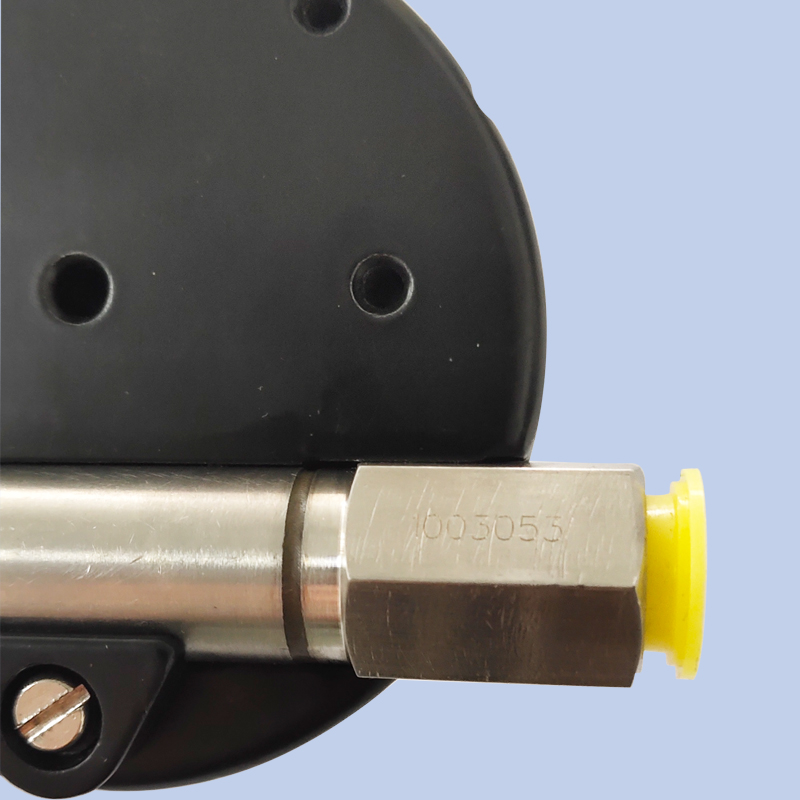
Ноя . 19, 2024 08:48 Back to list
Metal Diaphragm Pressure Gauge for Precise Measurement and Reliable Performance in Various Applications
Understanding Metallic Diaphragm Pressure Gauges
Pressure measurement is a fundamental aspect of many industrial processes, ensuring safety, efficiency, and product quality. Among the various types of pressure gauges available, the metallic diaphragm pressure gauge stands out as a reliable and accurate solution for measuring pressure in various applications. This article explores the functioning, applications, advantages, and disadvantages of metallic diaphragm pressure gauges.
What is a Metallic Diaphragm Pressure Gauge?
A metallic diaphragm pressure gauge is a type of pressure measuring instrument that uses a flexible metallic diaphragm to sense pressure changes. The diaphragm is typically made from materials such as stainless steel, bronze, or other alloys, which provide durability and resistance to harsh environments. When pressure is applied, the diaphragm deflects, and this movement is transmitted to a pointer via mechanical linkages. The pointer indicates the pressure reading on a calibrated dial.
Working Principle
The fundamental principle behind a metallic diaphragm pressure gauge is the mechanical deflection of the diaphragm. When the pressure inside the gauge increases, the diaphragm bends away from the pressure source. This deflection is directly proportional to the pressure exerted on it. The movement of the diaphragm is then translated into rotary motion through a mechanism of gears and levers, allowing the pointer on the dial to reflect the corresponding pressure reading.
Applications
Metallic diaphragm pressure gauges are widely used in various industries due to their versatility. Some common applications include
1. Oil and Gas Industry Monitoring pressure levels in pipelines, storage tanks, and drilling operations. 2. Chemical Processing Measuring pressures in reactors, distillation columns, and other chemical equipment. 3. Water Treatment Ensuring proper pressure levels in water supply systems. 4. HVAC systems Monitoring the pressure in heating, ventilation, and air conditioning systems. 5. Food and Beverage Measuring pressures in processes such as pasteurization, carbonation, and packaging.
metallic diaphragm pressure gauge

These gauges can also handle a range of pressure scales, including vacuum, absolute pressure, and differential pressure measurements.
Advantages
Metallic diaphragm pressure gauges have several advantages that make them a preferred choice in many applications
1. Reliability They offer high reliability and stability over time, making them suitable for continuous pressure monitoring. 2. Durability Made from robust materials, metallic diaphragm gauges can withstand harsh conditions, including high temperatures, corrosive environments, and vibrations. 3. Compact Design The compact design allows them to fit into tight spaces, which is advantageous in applications where space is limited. 4. Accuracy They provide accurate and repeatable measurements, essential for processes requiring precise control. 5. Low Maintenance Metallic diaphragm pressure gauges typically require minimal maintenance, further enhancing their appeal.
Disadvantages
Despite their benefits, metallic diaphragm pressure gauges have certain limitations
1. Limitations on Pressure Range Depending on the design and material used, these gauges may not be suitable for extremely high or low-pressure measurements. 2. Temperature Sensitivity Some models may be sensitive to temperature variations, affecting accuracy unless designed for specific temperature ranges. 3. Cost While they offer durability and reliability, metallic diaphragm gauges can be more expensive compared to other types of pressure gauges, such as bourdon tube gauges.
Conclusion
Metallic diaphragm pressure gauges play a crucial role in various industries by providing accurate, reliable, and durable pressure measurements. Their ability to withstand harsh conditions while offering precise readings makes them indispensable tools in many applications. However, when selecting a pressure gauge, it's essential to consider both the advantages and disadvantages to ensure the right choice for your specific requirements. With the right understanding of their functionality and use cases, businesses can enhance efficiency and ensure the safety of their processes through precise pressure monitoring.
-
Digital Pressure Gauge RS Components for Semiconductor & Chip Industries
NewsMay.23,2025
-
Industrial Differential Pressure Gauges Global Supplier & Pricelist
NewsMay.23,2025
-
Bourdon-Type Differential Pressure Gauges High Accuracy & Affordable Pricing
NewsMay.22,2025
-
Vacuum Differential Pressure Gauges High-Precision Solutions & Quotes
NewsMay.22,2025
-
Durable Diaphragm Pressure Elements High Accuracy & Custom Quotes
NewsMay.22,2025
-
AG Precision Pressure Gauges High Accuracy & Global Exporters
NewsMay.21,2025
